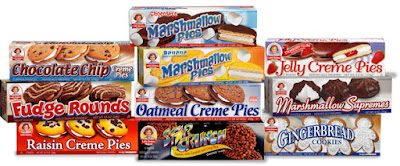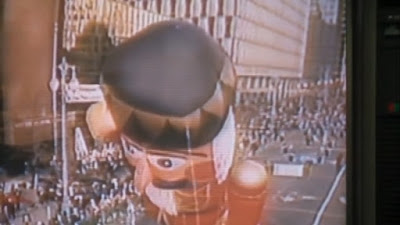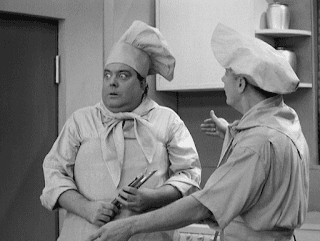As I mentioned in another "Commercial of YesterYear" article about Spirit Airlines (READ ABOUT IT HERE), or the Mount Airy Lodge commercials (WHICH YOU CAN READ ABOUT HERE), there were a few commercials that repeatedly aired on channels like WPIX (PIX-11) and WWOR (UPN-9) when I was a kid during the early 90s.
Long-time readers of this site know I'm an airline pilot by day and a retro blogger by night. I've always wanted to fly, except I always wanted to fly like Superman did. When I finally realized that was impossible, airplanes became the next best thing. I never really thought of it as a career until I was in tenth grade, and my family and I took a trip to Iowa to see my Mom's mother and her new husband... but that's an article for another day.
Before I thought of flying as a career, though, I LOVED planes. I looked up any time I heard them when I was outside. When I was really young, my Mom would take us to a small airport in town. We'd pack a lunch, and we'd go watch the student pilots practice their takeoffs and landings. My Grandparents on my Mom's side had lived in Florida before my Grandfather's passing, and we would fly down once a year to visit with them and then spend time at Disney World, and often, the plane ride was my favorite part of the trip.
So when these commercials started repeatedly airing, sometimes two or three times per hour, I was in love. Spirit Airlines is still around, but the other is long forgotten in the heap of post-deregulation airlines that came and went in the 80s and 90s.
That airline was Kiwi International Airlines.
One of the advertisements you'd always see was for "Kiwi International Airlines." Kind of a funny-sounding name for an airline based in Newark, New Jersey. The name will make sense once you hear about the airline's backstory, though.
Kiwi was created in 1992 by Robert Iverson, a former Eastern Airlines pilot. He and several other pilots from failed, sold, or merged airlines, such as Pan American, created the "Kiwi Acquisition Group." The name, Kiwi, was a reference to the bird that couldn't fly. Having lost their jobs from their previous airlines going out of business, these pilots were grounded just like the bird.
The early goal of the Kiwi Acquisition Group was to purchase the up-for-sale Pan Am Shuttle. A little airline history: Pan Am rejected Kiwi's offer and accepted the offer from Delta Air Lines. This allowed Delta to grow from a mostly domestic airline into the international powerhouse it is today. After the failed purchase, the investment group of pilots decided it would be best to start their own airline.
With each pilot investing $50,000 of their own money in exchange for a guaranteed Captain job and other employees contributing $5,000, they raised over $10 million. Kiwi focused on a low-cost experience without sacrificing first-class quality. Full meal service, extra legroom, friendly employees, and low-cost airfare were what Kiwi offered its mostly business clientele. They quickly purchased two Boeing 727 aircraft from German airline Lufthansa and launched service on September 21, 1992, from Newark, New Jersey, to Chicago's Midway Airport.
Employee morale was initially very high due to higher-than-average pay and positive labor relations. At the end of its first year, the airline had grown to 13 aircraft and 1,500 employees, but the airline lost $6 million that year despite the extremely satisfied customers and employees. Even with the financial loss, the airline received several industry awards, such as The Best Airline in America from Condé Nast Traveler and the "President's Award of Merit" from the Inflight Catering Association. Virgin Airlines' Richard Branson even called them his "favorite US airline."
By 1995, the airline was flying to places like Aruba, Boston, Bermuda, Las Vegas, Miami, Orlando, and Tampa. At its peak, Kiwi International was flying to 14 destinations using nearly 20 aircraft.
Unfortunately, rival airlines ValuJet (which would become AirTran) and TWA had fatal accidents just months apart in 1996 that caused FAA oversight on all airlines and increased media scrutiny on "low-cost carriers." Due to a maintenance documentation issue, the FAA grounded nearly half of the Kiwi fleet. Even though it was mostly just a clerical issue and the airline resumed flying the planes again quickly, public confidence was shaken. The airline filed for bankruptcy in 1997, and a judge agreed to liquidate the airline.
An orthopedic surgeon and his business partner, a lifelong entrepreneur, teamed up with a Long Island, New York, investment firm to purchase the airline out of bankruptcy. The airline revamped its route network, and employees took large pay cuts. Sadly, by the end of 1998, the airline had a loss of $20.6 million.
In March of 1999, the U.S. Department of Transportation announced plans to revoke Kiwi's operating certificate for failing to meet federal fitness standards for air carriers. At the time, they were reduced to just a charter carrier with 4 leased jets flying to only 6 cities. With less than 500 employees and 11 months worth of ticket sales (approximately 80,000 seats worth), the airline went under. In December, the bankruptcy judge liquidated the airline for good.
I most remember seeing the Kiwi commercials on TV between 1992 and 1995. They would be EVERYWHERE... like two to three times per hour! Growing up in the New York metropolitan area, the airline's hometown, was a big target for their advertising. Enjoy the Kiwi goodness that brings back the joys of television watching during my childhood!
I'm astonished that with all of the success the airline had initially, including a fairly rabid fan base of business travelers, there aren't more commercials on YouTube. This is the only one, as of the time of writing.
Despite the airline's sad finish, Kiwi International flew over 8 million passengers without incident and left the industry with a solid safety record. With low fares and high-quality service, Kiwi should have been a stand out in the post-deregulation 90s but is sadly barely remembered by the flying public today.
Do you remember Kiwi or its commercials? Leave a comment below!













.png)




Comments